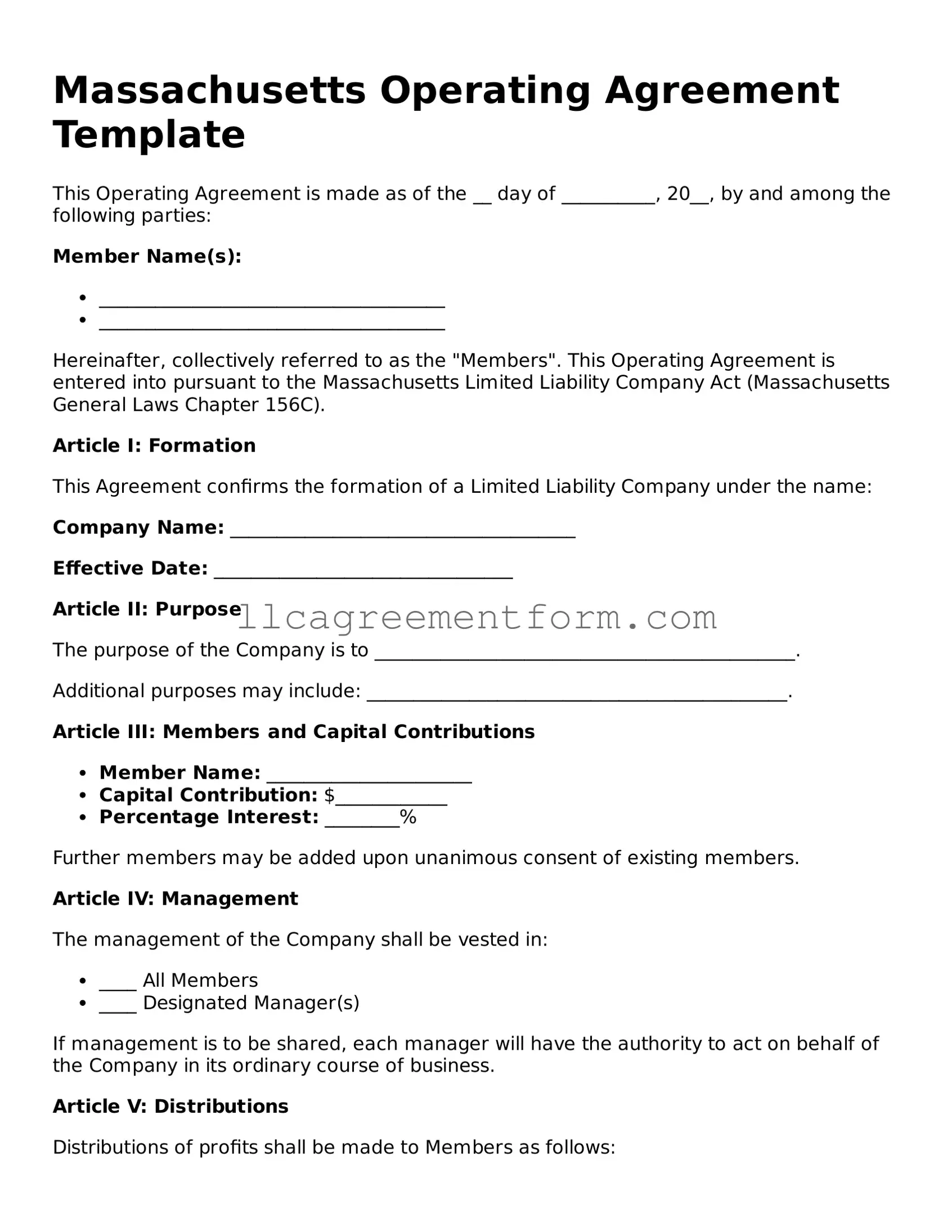Free Operating Agreement Document for Massachusetts
The Massachusetts Operating Agreement form is a legal document that outlines the management structure and operational guidelines of a limited liability company (LLC) in Massachusetts. This form is essential for establishing clear roles and responsibilities among members, ensuring compliance with state laws, and protecting the interests of all parties involved. For those looking to formalize their LLC's operations, filling out this form is a crucial step.
Click the button below to fill out the Massachusetts Operating Agreement form.
Get Operating Agreement Now

Free Operating Agreement Document for Massachusetts
Get Operating Agreement Now
Don’t stop halfway through your form
Finish Operating Agreement online with fast editing and easy download.
Get Operating Agreement Now
or
▼ PDF
